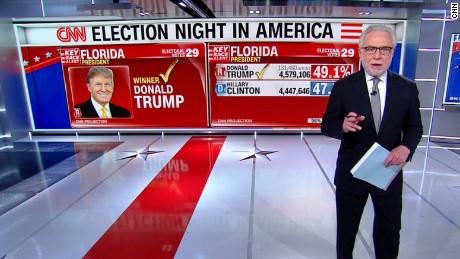Pretty much said most of what I wanted to say about the election on Sunday, when I feared it had become a toss-up. I felt that way since the FBI’s shenanigans, though in retrospect the race was always probably much closer than it seemed. That’s likely not due to pollster incompetence but because many didn’t want to admit they were voting for Trump’s “Make America White Again” campaign.
This election was clearly not one about economics or small government, not with Trump’s budget-busting proposals. He wasn’t elected because of policy or even because most of his supporters truly believe he’ll build a wall. They just wanted to stamp their feet and blame others for awhile. It’s not that the factories are disappearing, but that America as the property of white males is.
That acting-out will cost dearly, in fact it will hurt many of the Trump voters worst of all. As with the insincere sellers of “Family Values” of the ’80s, ’90s and aughts played the masses in order to gain power, Trump used anxieties about a non-white world to achieve the same. The only difference is the Gingriches and Roves desired power for political reasons while Trump wanted it because of his deep psychological neediness. But the awful cast who surround him–Giuliani, Thiel, Bannon, etc.–definitely aim to use the authority to shape the country for decades. It will be a shape that fits the new populace poorly.
You can take some solace from Hillary likely winning the popular vote–at least a slim majority of us aren’t in support a deeply racist, sexist, xenophobic clown, a mix of Lampanelli and Mussolini–but it’s just a sliver of peace. For all the pundits now rushing to make lists of “Winners” and “Losers” and treat the country like’s it’s merely a game, a horse race, go fuck yourselves. The loser is America and everything it supposedly stands for.
David Remnick spoke to the horrible results immediately, beautifully and passionately. I’d much rather be focusing on his recent Leonard Cohen profile–one of my favorite writers writing about one of my favorite writers–but today’s not that day. In one section, the New Yorker EIC addresses something I’ve discussed in the days leading to the election, that our new technological tools have not made us better as was promised. He asserts that “on Facebook, articles in the traditional, fact-based press look the same as articles from the conspiratorial alt-right media. Spokesmen for the unspeakable now have access to huge audiences.” So true. An excerpt:
In the coming days, commentators will attempt to normalize this event. They will try to soothe their readers and viewers with thoughts about the “innate wisdom” and “essential decency” of the American people. They will downplay the virulence of the nationalism displayed, the cruel decision to elevate a man who rides in a gold-plated airliner but who has staked his claim with the populist rhetoric of blood and soil. George Orwell, the most fearless of commentators, was right to point out that public opinion is no more innately wise than humans are innately kind. People can behave foolishly, recklessly, self-destructively in the aggregate just as they can individually. Sometimes all they require is a leader of cunning, a demagogue who reads the waves of resentment and rides them to a popular victory. “The point is that the relative freedom which we enjoy depends of public opinion,” Orwell wrote in his essay “Freedom of the Park.” “The law is no protection. Governments make laws, but whether they are carried out, and how the police behave, depends on the general temper in the country. If large numbers of people are interested in freedom of speech, there will be freedom of speech, even if the law forbids it; if public opinion is sluggish, inconvenient minorities will be persecuted, even if laws exist to protect them.”
Trump ran his campaign sensing the feeling of dispossession and anxiety among millions of voters—white voters, in the main. And many of those voters—not all, but many—followed Trump because they saw that this slick performer, once a relative cipher when it came to politics, a marginal self-promoting buffoon in the jokescape of eighties and nineties New York, was more than willing to assume their resentments, their fury, their sense of a new world that conspired against their interests. That he was a billionaire of low repute did not dissuade them any more than pro-Brexit voters in Britain were dissuaded by the cynicism of Boris Johnson and so many others. The Democratic electorate might have taken comfort in the fact that the nation had recovered substantially, if unevenly, from the Great Recession in many ways—unemployment is down to 4.9 per cent—but it led them, it led us, to grossly underestimate reality. The Democratic electorate also believed that, with the election of an African-American President and the rise of marriage equality and other such markers, the culture wars were coming to a close. Trump began his campaign declaring Mexican immigrants to be “rapists”; he closed it with an anti-Semitic ad evoking “The Protocols of the Elders of Zion”; his own behavior made a mockery of the dignity of women and women’s bodies. And, when criticized for any of it, he batted it all away as “political correctness.” Surely such a cruel and retrograde figure could succeed among some voters, but how could he win? Surely, Breitbart News, a site of vile conspiracies, could not become for millions a source of news and mainstream opinion. And yet Trump, who may have set out on his campaign merely as a branding exercise, sooner or later recognized that he could embody and manipulate these dark forces. The fact that “traditional” Republicans, from George H. W. Bush to Mitt Romney, announced their distaste for Trump only seemed to deepen his emotional support.•
Tags: David Remnick

